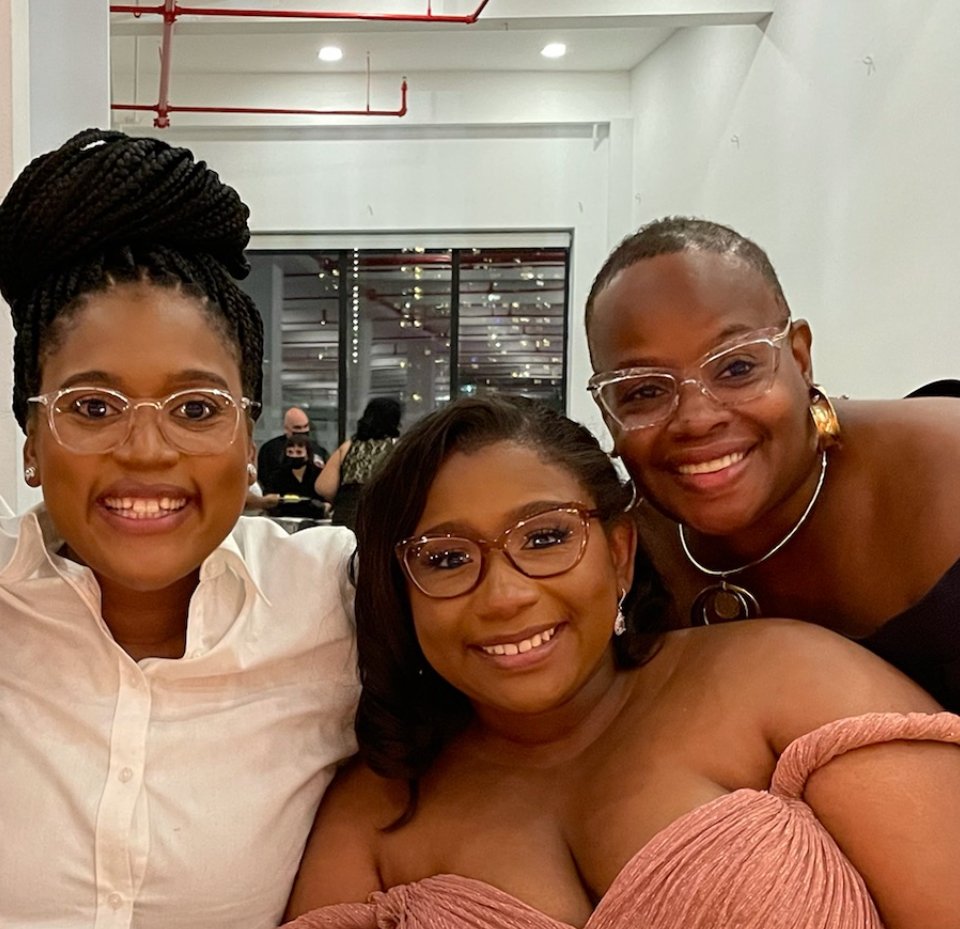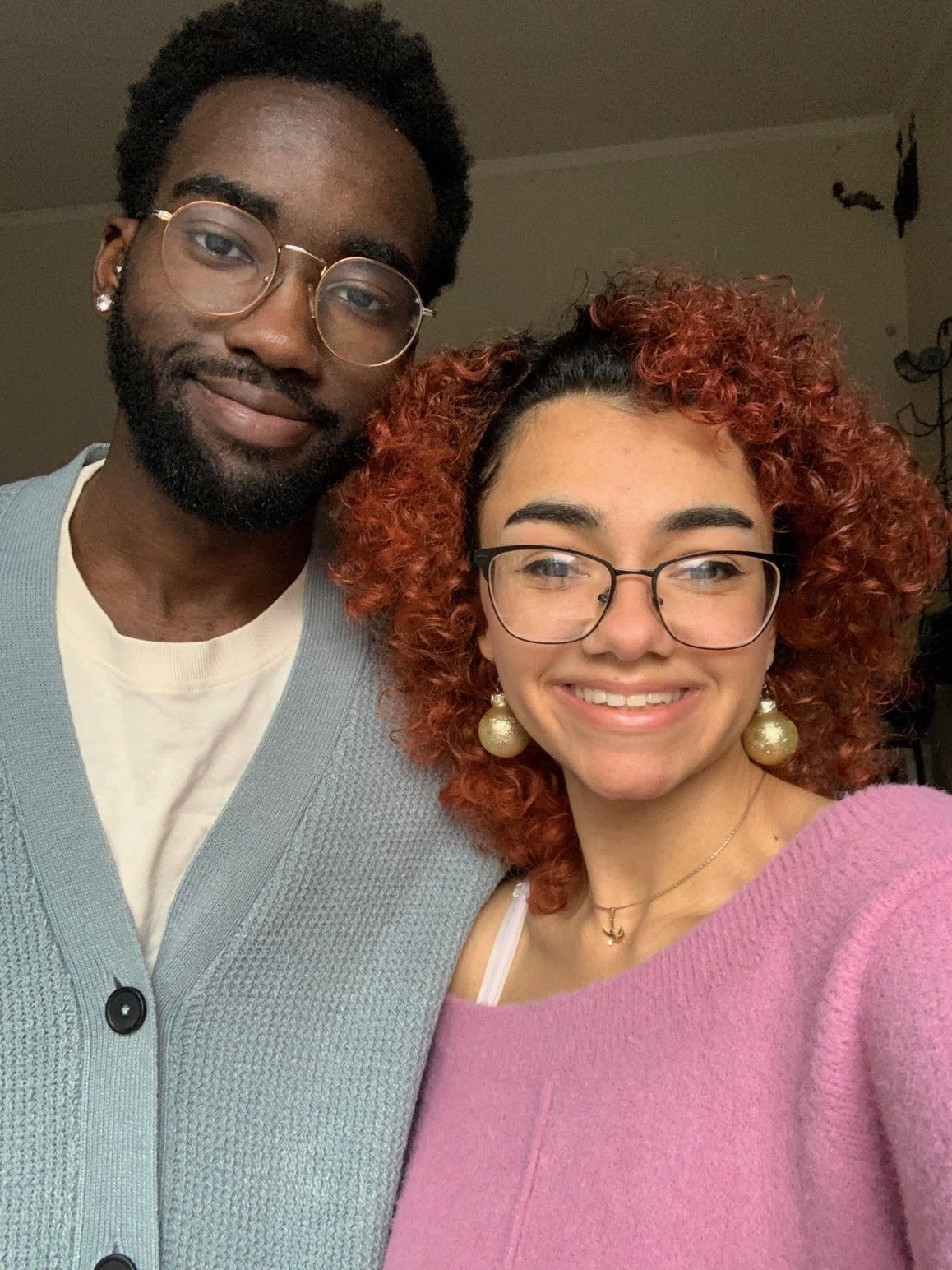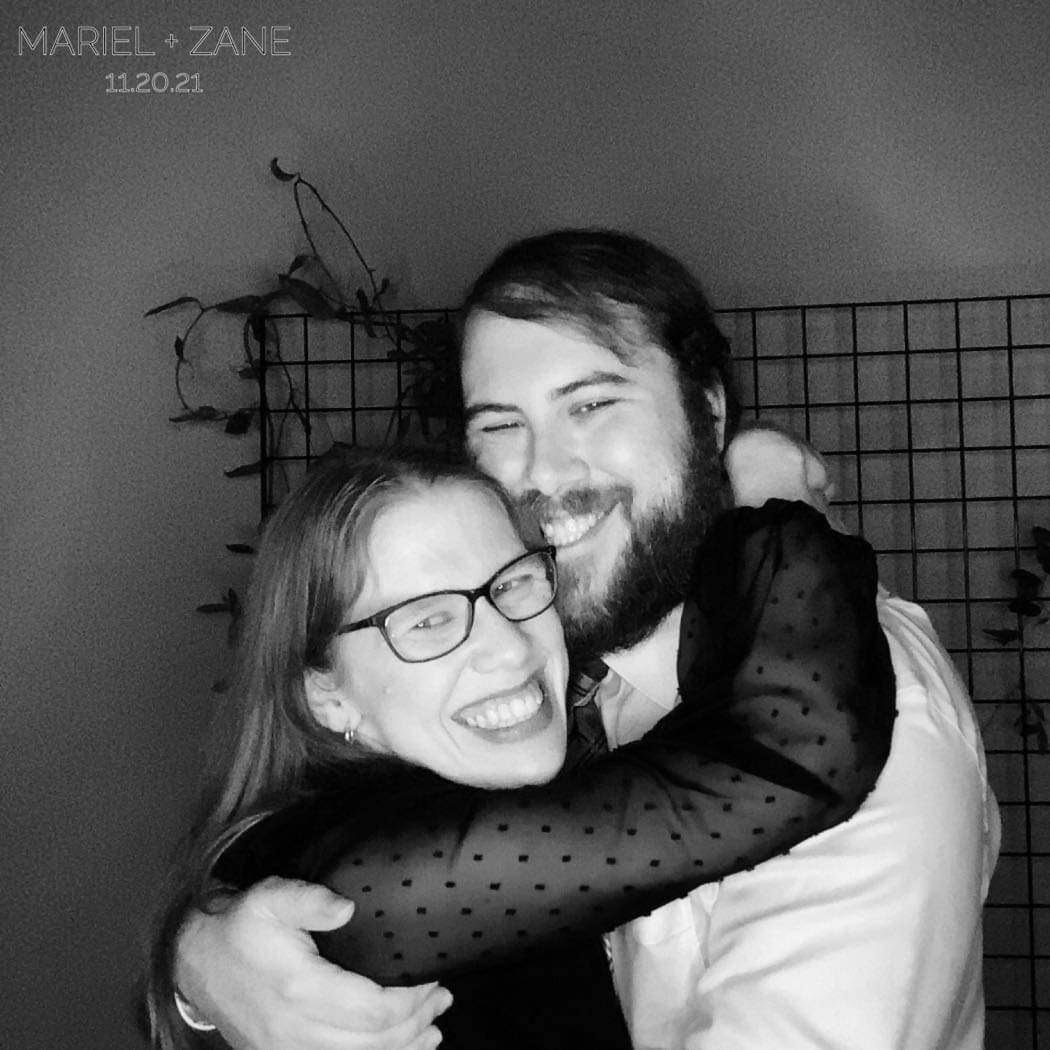Disabled People Share Advice for Caregivers
Two people holding hands, mugs on the table. Courtesy: Canva
By Arielle Dance
Caregivers often give their energy, skills, and time selflessly. A caregiver can be a family member, partner, friend, or a paid supporter. Qualities that many disabled people aim for in a caregiver are compassion, patience, flexibility, detail oriented, anticipation of needs, and a sense of safety.
Four disabled adults, members of the Diversability Leadership Collective, shared their gratitude for their caregivers. Although the experiences of each person and their caregivers is not generalizable, it is important to elevate caregivers, the amazing work they do, and how people like to be supported by a caregiver.
Arielle (middle) and her two caregivers. Courtesy, Arielle
Arielle Dance (she/her)
As a recent surgical patient, diagnosed with endometriosis and adenomyosis, Arielle expresses extreme gratitude for the love and support of her mother and wife. Her advice to caregivers is to “be gentle with yourself, if your patient is grouchy, it's not you, it's their situation.” As caregivers freely give compassion and love to the person they are caring for, they must also offer themselves compassion and grace. Acknowledging their own needs and taking time to rest will make them stronger caregivers.
Arielle, also, encourages caregivers to ask how they can support and anticipate the needs of the person they are supporting. “Sometimes you will have to be assertive and encourage your patient to do things they don't want to… I was stubborn and scared but they walked me through the fear.” When someone is recovering from a surgery, they may be fearful of what their body is capable of or have unrealistic notions of what they’re capable of. Having a caregiver who is hovering in a corner, just in case they’re needed, offers feelings of safety.
Emma in a red top and bird earrings, smiling. Courtesy, Emma
Emma Farley (she/her)
Emma was born with a rare form of muscular dystrophy called a collagen VI-related dystrophy (COL6A1-RD) which causes muscle weakness, joint contractures, and respiratory weakness. As a full-time wheelchair user, Emma has a paid aid/caretaker who supports her through daily tasks.
Her advice for caregivers is “to have an open and honest dialogue with the person you are providing assistance to (what are each of your expectations, boundaries, likes/dislikes, preferences, needs, etc.)”. Open communication between two people, especially when one is a non-relative, nor as familiar with the other, helps to “build trust, get on the same page, get to know each other, and establish what's the best/most effective way to communicate with one another.”
Emma also cautions caregivers to not assume a parental role especially when working with a disabled adult. Respecting people’s autonomy and boundaries is an essential part of caregiving. “You may feel the need to protect, help, suggest, teach, etc. -- but before you do so, ask yourself, ‘If I do [action], will it take away their sense of independence and adulthood?’. The concept of independence is key for disabled adults.
Lala and her caregiver. Smiling and wearing glasses and sweaters. Courtesy, Lala
Lala Shanks (she/he/they)
Lala is autistic and lives in chronic pain, fatigue, and cognitive dysfunction. Their partner is their primary caregiver due to chronic illness symptoms which keep Lala from doing daily tasks including work. Lala is also an ambulatory and part-time user of a wheelchair, cane/walking stick, and rollator walker.
For Lala, the best advice is for caregivers to hold space for honest communication and to set their own boundaries. Setting boundaries and clearly communicating will help encourage self-care and restoration. “Don’t grow disdainful or patronizing of the person or people you’re caring for having needs. There is nothing wrong with needing help, and the same goes for you! You can’t pour from an empty cup!”
Black and white photo of Victoria and her caregiver hugging and smiling. Courtesy Victoria
Victoria Wheeler (she/her)
Victoria lives with cerebral palsy which keeps her from walking unassisted. She also has underdeveloped fine motor skills, has hypertonia, and spasticity in all muscles. In her home, Victoria uses a walker; outside of the house, she uses a power wheelchair. After trying to work with a caregiver agency, Victoria turned to her partner as her primary caregiver.
In their partnership, clear communication of each other’s needs is essential. Her advice to caregivers is to “listen closely and really observe the person you are caring for. Don’t assume any needs or wants without asking first.”. Doing this provides the person with a sense of independence and autonomy.
Caregivers are a vital support to disabled people. Whether they are loved ones or hired professionals, they are appreciated for the work they do. When selecting a caregiver, remember to seek out the characteristics you want, communicate effectively about your needs, and express your appreciation for their support.
About the Author:
Arielle Dance, PhD is a Writer at Diversability who identifies as a black queer woman with disabilities. Arielle is published across multiple online platforms and has a children’s book, Dearest One, that focuses on mindfulness and grief.





